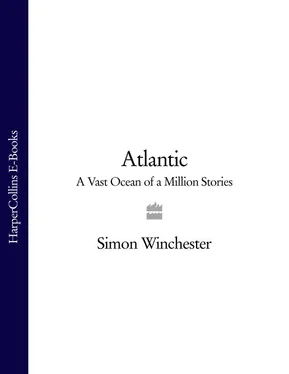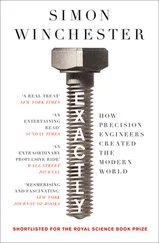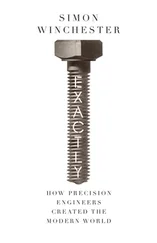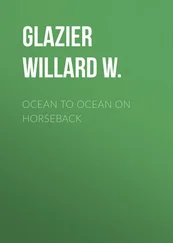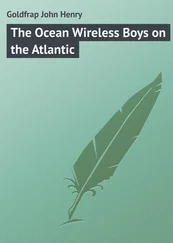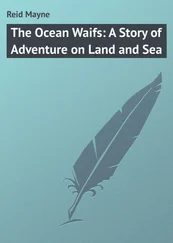It also has a quite predictable span of life. Geologists believe that when all is done the Atlantic Ocean will have lived for a grand total of about 370 million years. It first split open and filled with water and started to achieve properly oceanic dimensions about 190 million years ago. Currently it is enjoying a sedate and rather settled middle age, growing just a little wider each year, and with a few volcanoes sputtering away in its mid-region, but generally not having to suffer any particularly trying geological convulsions. But in due course, these will come.
Before what geologists like to think is too much longer, the Atlantic will begin to change its aspect and size very dramatically. Eventually, as the continents around it shudder and slide off in different directions, it will start to change shape, its coasts (ac-cording to the currently most favoured scenario) will move inward and become welded together again, and the sea will eventually squeeze itself dry and vanish into itself. Planetary forecasters estimate this will take place in about 180 million years.
That is no mean life span. Assume for the sake of argument that the world’s total existence, from the postmolten Hadean to the cool meadows of today’s Holocene, encompasses some 4.6 billion years. Once tallied up, the Atlantic’s 370 million years of existence as a separate body of water within that world will have made up something like 8 per cent of the planet’s total life. Most other oceans that have come and gone have existed for rather shorter periods: so far as other competing claims for longevity are concerned the Atlantic will probably turn out to be one of the world’s longest-lived, a potential old-timer, a highly respectable record breaker.
It is both possible and reasonable, then, to tell the Atlantic Ocean’s story as biography. It is a living thing; it has a geological story of birth and expansion and evolution to its present middle-aged shape and size; and then it has a well-predicted end story of contraction, decay, and death. Distilled to its essence it is a rather simple tale to tell, a biography of a living entity with a definable beginning, a self-evident middle and a likely end.
But then there is very much more to the tale than that. For we cannot forget the human aspect of the story.
Humans have lived around the Atlantic’s peripheries and on its islands, and have crossed and recrossed it, plundered it and fought on it, seized it and surveyed it and despoiled it, and in doing so have made it quite central to our own evolving lives. That is a story, too - a story quite different from, and very much shorter than, that of the making and unmaking of the ocean itself, but one that is yet vastly more important to us as human beings.
Humans were not there when the ocean formed. We will not be there when it ceases to be. But for a definable period, poised almost in the midlife of the ocean itself, we humans arrived, we developed, and — or so we like to think — we promptly changed everything. Only by telling this second story, the kernel within the main shell of the first, can we recount in full the life of the Atlantic Ocean. The physical ocean’s history of opening and closing then becomes the context, the frame, for the history of humanity’s intimate involvement with and within it.
That human story began when man first settled on the Atlantic’s shores. As it happens, mankind spilled down to the sea most probably in southern Africa, and he did so quite possibly (and most fortunately for this account) very close to Africa’s southern Atlantic shores. What follows from that moment is every bit as complicated and multidimensional as one might imagine: the human story of the ocean swiftly becomes a saga of a mélange of peoples and parallels, of diverging languages and customs, of mixtures of acts and events, achievements and discoveries, of confusions and contests. It is a tricky tale to tell. Simple chronology might suit very well the story of the making of the physical sea itself - but the details of the human experience are scarcely so amenable.
For how would it be possible to knit together the experience of, say, a Liberian fisherman with that of an atomic submariner on patrol off Iceland? Or to link the life of an amethyst miner on the shores of Namibia with that of the American director of Man of Aran; to write of the captain of a British Airways Boeing and of an ice-patrol ship off the coast of South Georgia; or to connect the long-dead sea-painter Winslow Homer with a wide-eyed Guantanamo detainee from western China, swimming for the first time in the Atlantic Ocean off Bermuda? How best create a sensible structure from all this strange and multicoloured variety?
For a long time that remained a puzzle. I wanted so much to write the story of the ocean. But what and where was the structure? I was, as they say, all at sea.
Except that one day, gazing down at the rolling waters, I thought: if the ocean had a life, might not mankind’s relationship with it have some kind of a life about it also? After all, fossils and finds from digs show that this relationship had a particular moment of birth. It will have a likely moment of death, as well - even the most determined optimist will have to admit that an end to human existence is in sight, that in a few thousand, or maybe a few tens of thousands of years, humanity will be finished, and this aspect of the story will be over, too.
So yes, to corral the life of this human relationship with the sea, and place it within the context of the much more straightforward life of the ocean itself - this might indeed be possible as biography, too. But then there were the details, churning and daunting and devilish. The tide of human history was so filled with facts and incidents and characters and tones of subtle shading, that it might be near impossible to swim against it.
But in the end, and out of the blue, I was tossed a quite unexpected lifebelt - and by that most non-maritime of rescuers, William Shakespeare.
• • •
For many years I had carried with me on tedious plane journeys (and indeed had with me as we passed above the waters of Flem ish Cap that recent time) a well-thumbed copy of Seven Ages, an anthology of poetry that was assembled in the early 1990s by a former British foreign secretary, David Owen. He had arranged his chosen poems in seven discrete sections, to illustrate each of the seven stages of man’s life that are listed so famously in the “All the world’s a stage …” speech in As You Like It. And I was reading Owen’s book one day when I realised that this very same structure also happened to offer me just what I needed for this human aspect of the Atlantic story: a proper framework for the book I planned to write, a stage setting that would transmute all the themes of ocean life into players, progressing from infancy to senescence, so that all could be permitted to play their parts in turn.
The Ages are those we remember, if scantily, from childhood, and are listed in Jacques’s all too famously gloomy monologue:
At first the infant, Mewling and puking in the nurse’s arms; And then the whining school-boy, with his satchel, And shining morning face, creeping like snail Unwillingly to school. And then the lover, Sighing like furnace, with a woeful ballad Made to his mistress’ eyebrow. Then a soldier, Full of strange oaths, and bearded like the pard, Jealous in honour, sudden and quick in quarrel, Seeking the bubble reputation Even in the cannon’s mouth. And then the justice, In fair round belly with good capon lin’d, With eyes severe and beard of formal cut, Full of wise saws and modern instances; And so he plays his part. The sixth age shifts Into the lean and slipper’d pantaloon, With spectacles on nose and pouch on side; His youthful hose, well sav’d, a world too wide For his shrunk shank; and his big manly voice, Turning again toward childish treble, pipes And whistles in his sound. Last scene of all, That ends this strange eventful history, Is second childishness and mere oblivion; Sans teeth, sans eyes, sans taste, sans everything.
Читать дальше
